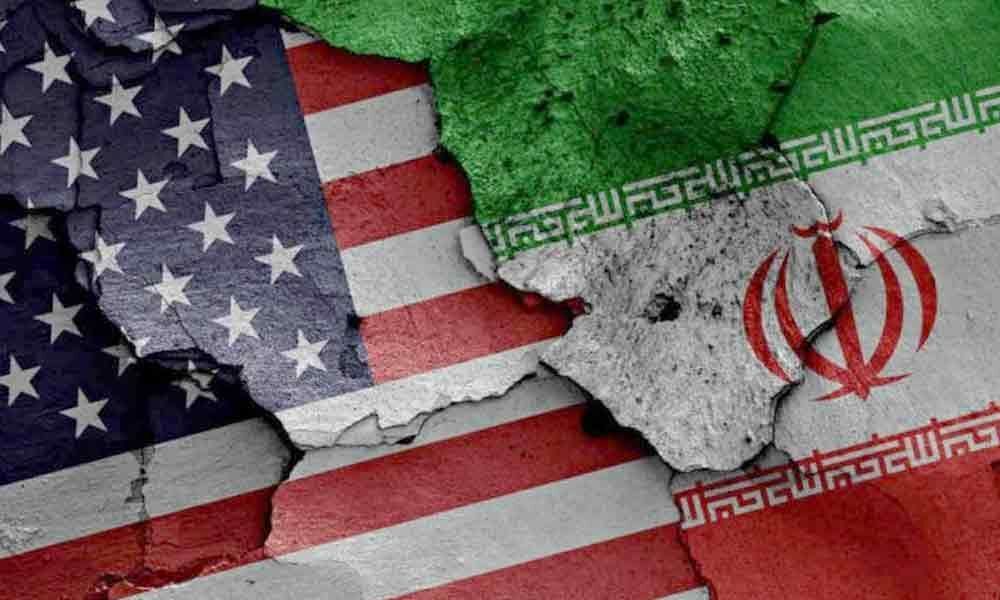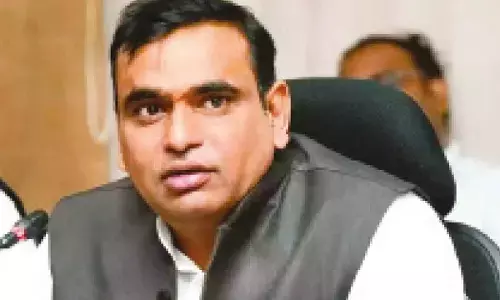Iran works to counter US sanctions; says it can hit US warships in gulf easily

Washington has increased economic sanctions and built up its military in the region, accusing Iran of threats to US troops and interests.
Dubai: Iran said on Friday it could "easily" hit US warships in the Gulf, the latest in days of saber rattling between Washington and Tehran, while its top diplomat worked to counter US sanctions and salvage a nuclear deal denounced by US President Donald Trump.
Tensions have risen in recent days, with concerns about a potential US-Iran conflict. Earlier this week, the United States pulled some diplomatic staff from its embassy in Baghdad following weekend attacks on four oil tankers in the Gulf.
"Even our short-range missiles can easily reach (US) warships in the Persian Gulf," Mohammad Saleh Jokar, the deputy for parliamentary affairs of the elite Revolutionary Guards (IRGC), was quoted by Fars news agency as saying.
"America cannot afford the costs of a new war, and the country is in a bad situation in terms of manpower and social conditions," he added.
Washington has increased economic sanctions and built up its military presence in the region, accusing Iran of threats to US troops and interests. Tehran has described those steps as "psychological warfare" and a "political game".
In Washington, a senior administration official said the United States is "sitting by the phone" but has heard no message yet from Iran that it is willing to accept Trump's overtures for direct talks.
"We think they should de-escalate and come to negotiations," the official, who declined to be identified, told a small group of reporters.
Trump has urged Iran's leadership to hold talks over its nuclear program and regional influence amid rising tensions between the two countries that has fanned fears of armed conflict after the United States deployed an aircraft carrier group to the region.
Iranian army chief Major General Abdolrahim Mousavi vowed: "If the enemy miscalculates and commits a strategic error, it will receive a response which will make it regret (its action)," the semi-official news agency Mehr reported.
Senior lawmaker Heshmatollah Falahatpisheh called on Twitter for an Iran-US "red desk" to help prevent a war.
"Top authorities in Iran and America have rejected a war, but third parties are in a hurry to destroy a large part of the world. A red desk should be set up in Iraq or Qatar with officials from the two sides ... to manage tensions," said Falahatpisheh, head of parliament's national security committee.
Supreme Leader Ayatollah Ali Khamenei said this week Tehran would not negotiate another nuclear deal after Washington last year quit a 2015 international pact that put curbs on Iran's potential pathway to build a nuclear bomb in exchange for the lifting of international sanctions.
Trump believes the economic pressure will force Tehran to accept tougher restrictions on its nuclear and missile programs and on its support for proxies in Iraq, Syria and Yemen. He has said publicly he wants to pursue diplomacy after withdrawing from the deal and moving to cut all Iranian oil exports.
Foreign Minister Mohammad Javad Zarif, on a visit to Japan and China, said the international community and remaining signatories of the nuclear deal should act to save the accord as "supportive statements" are not enough.
Last week, Iran notified the five remaining signatories that it would reduce some commitments under the accord. Tehran has asked the other signatories, including Germany, Britain and France, to help protect its economy from US sanctions.
"Safeguarding the (nuclear accord) is possible through practical measures, and not only through supportive statements," Zarif was quoted as saying by the state news agency IRNA.
"If the international community feels that this (nuclear) accord is a valuable achievement, then it should take practical steps just like Iran does," Zarif said on Iranian state television. "The meaning of practical steps is fully clear: Iran's economic relations should be normalised."
Iran's economy is expected to shrink for the second year running and inflation could reach 40 percent, an International Monetary Fund senior official said last month, as the country copes with the impact of tighter US sanctions.
The curbs under the nuclear deal were aimed at extending the time Iran would need to produce a nuclear bomb, if it chose to, to a year from roughly 2-3 months.
The United States and the UN nuclear watchdog believe Iran had a nuclear weapons program that it abandoned. Tehran denies ever having had one.



















